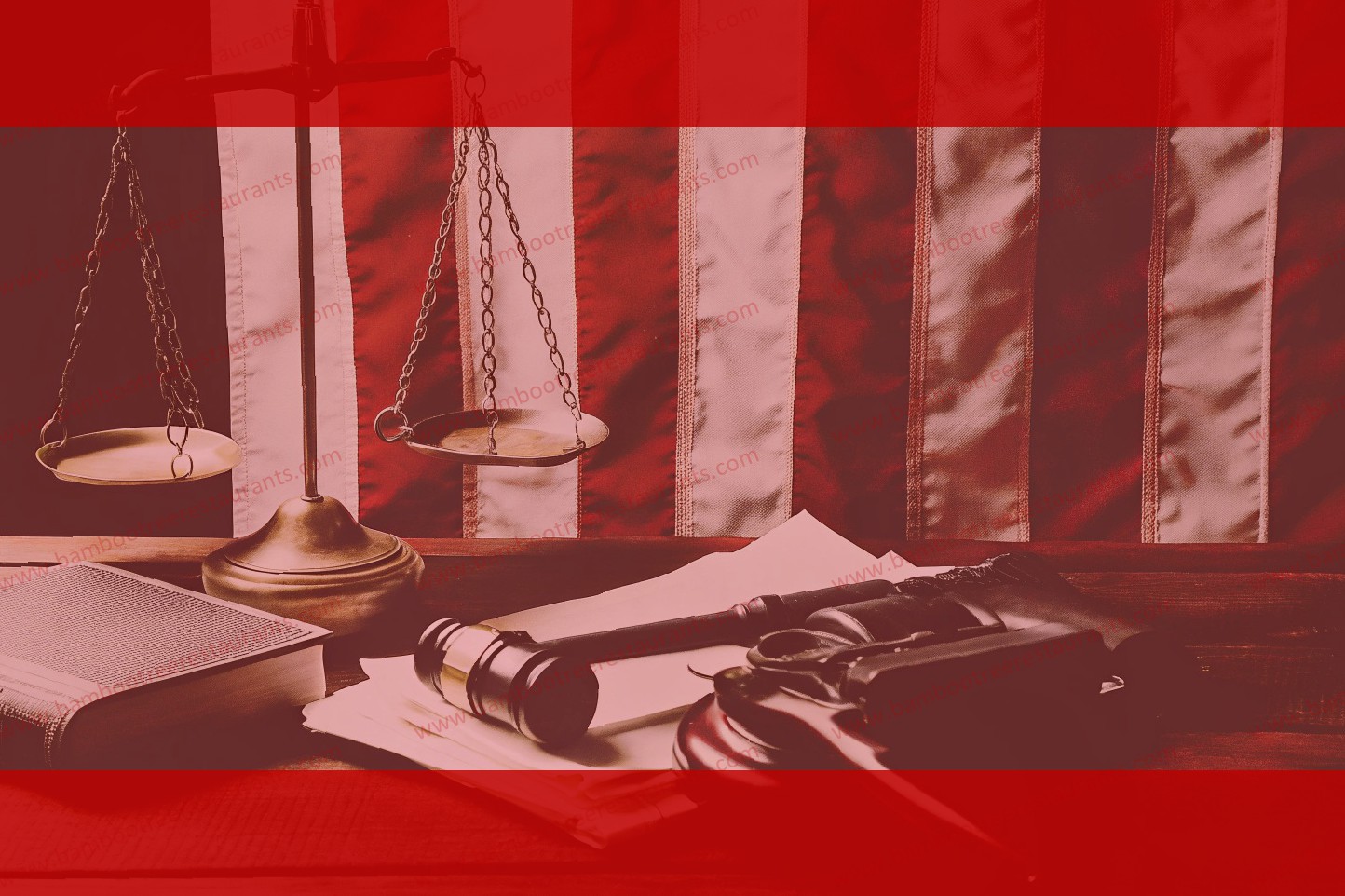An Overview of Indiana Gun Regulations
Indiana’s gun laws are enacted and enforced at both the state and local levels, with a number of regulatory bodies having some level of authority.
Gun Control and State Preemption In 2011, the General Assembly passed a preemptive law that prohibits local municipalities from enacting their own gun control measures. Interestingly, Indiana now has some of the least restrictive gun laws in the United States, and one of the few requiring a license to carry a handgun. Gun ownership is an extensive and flourishing hobby among Indiana residents of all ages.
Under Indiana law, anyone 18 years or older may legally possess and fire a handgun or long gun so long as they are not prohibited due to prior felony convictions or other legal barriers.
Home Rule § 18-2-2-19 of the Indiana Code defines "home rule" as a governing body’s ability to regulate matters within its jurisdiction. This means that the mayor, city council, county council , and similar city and county organizations have the right to implement additional local ordinances outside of state law for the interests of the community.
Section 18-2-2-19 further states that these alternative or additional ordinances cannot be developed for the purposes of regulating firearms, weapons, or ammunition, nor for regulating dealers of these items.
Section 35-47-2-25 of the Indiana Code, commonly known as the handgun red flag law, requires gun owners who are deemed a danger to themselves or others to voluntarily surrender their firearms to the local sheriff. If they refuse to do so, the sheriff may issue a search warrant to retrieve the firearms.
This could be important to know if you are being investigated for a crime in which firearms are involved.
Essentially, state law permits you to own a firearm, but does not allow you to carry it for self-defense without a license. To obtain this license, you must fill out an application and submit to a traditional background check, as well as fingerprinting.
Less restrictive than many states, Indiana firearm licensing allows individuals to carry firearms that are not registered, that contain no serial information, and that are not manufactured within the state.
Indiana Felony Conviction and Firearm Possession
A felony conviction under Indiana gun laws affects a person’s ability to lawfully own, possess, or supply a firearm in several ways. Some of the most serious impediments to owning or possessing a gun are due to the conviction itself, while others may result from a person’s status as a sentenced felon or because of bad conduct or associations.
The First and Foremost Impediment to Gun Ownership (and Censorship Not Related to Gun Safety)
Federal firearms legislation prohibits the ownership and possession of firearms by persons convicted of felonies punishable by an imprisonment term of a year or more. A mandatory minimum sentence of one year can be found for most felonies in Indiana. Convicted felons are usually prohibited by law from possessing firearms, but this prohibition may be lifted in some cases if the individual successfully has his or her rights restored. Once rights are restored, a convicted felon may own or possess firearms in Indiana.
A person convicted of a felony can petition to have their firearm privileges restored after five years have passed from his or her full satisfaction of the person’s sentence, including parole. Firearm privileges also may be restored if the person obtains a certificate or pardon of restoration pursuant to Indiana Code § 35-38-1-33.
Federal law may apply to persons seeking restoration of firearm privileges, if the person traveled or received a firearm across state lines or if a firearm was used in a different state. Under federal law, a person with a prior felony conviction may not own or possess a firearm or ammunition in any state. Felons may apply to have their firearms privileges reinstated under federal law pursuant to federal law 18 U.S.C. § 921 (a) (20) & 18 U.S.C. § 922 (g).
Buying a Gun After a Felony Conviction
If the excluded person attempts to purchase a firearm sometime after the Indiana five-year prohibition has expired (or if the prohibition has ended by the granting of an Indiana restoration of gun ownership privileges), the person may be charged with a Class A misdemeanor, which is punishable by up to one year in prison. Attempting to purchase a firearm may also be charged as a crime in another state or under federal law.
Bad actors involved in the Commission of Felony Could Be Prohibited from Gun Ownership
The Indiana gun laws also prohibit individuals from possessing or supplying firearms if they were involved in the commission of felony on or after July 1, 1965. The following is a list of felonies that result in a lifetime prohibition on personal gun ownership:
Some Criminal Acts Do Not Lead to Lifetime Gun Prohibition
There are exceptions to the gun ownership restrictions discussed in the previous section, in that these restrictions remain in place even where the felon’s conviction is removed following his or her inability to pay a fine or cost.
Conviction for a misdemeanor crime of domestic violence or stalking leads to a federal prohibition on firearm possession. The conviction also could prevent a person from obtaining a firearm under federal and state background checks. If a person’s misdemeanor conviction for domestic violence is expunged, the federal prohibition is automatically lifted.
Restoration of Firearm Rights for Convicted Felons
One exception to the rule is for individuals who are convicted of a Class D felony. I.C. 35-47-4-7 allows for the restoration of gun rights for individuals who were convicted of a Class D felony by the state after five years have passed and there are no pending criminal charges, and the individual has not been convicted of unlawful possession of a firearm under I.C. 35-47-4-3 in the past 10 years. If the reason for the loss of gun rights does not fall into these categories then the individual should apply for a pardon. A pardon restores some civil rights including the right to possess firearms. The process for applying for a pardon is lengthy, but possible. The first step is to file an application for a pardon. After an initial review, the Governor will convene the parole board and decide if a public hearing is warranted to evaluate the application. If the parole board calls a hearing, the applicant must attend the hearing. After hearing testimony and reviewing the application materials, the parole board will make a recommendation which the Governor will then accept or reject. If the Governor approves the recommendation then a Clemency Grant Order will be signed and issued to the client. However, in order for the client to obtain a new gun permit they will need to petition the Court of Appeals to remove the civil disabilities.
Penalty for Convicted Felons in Possession of Firearms
Convicted felons are barred from carrying weapons of any type. If a convicted felon is found with a weapon, they face serious criminal charges. The laws on possession of firearms by convicted felons in Indiana make it clear that circumstances where a convicted felon is found with a firearm will be dealt with very seriously by Indiana law. Many people presume that the law will be lenient for convicted felons who are found to be in possession of weapons in cases where a law enforcement officer discovers the weapon after an arrest for some other charge, such as a minor traffic infraction. However, the law does not differentiate. The presumption under Indiana law is that convicted felons may never be lawfully in possession of a weapon. Many circumstances in which a convicted felon could potentially have a weapon are automatically exempted from this prohibition: The penalties for a conviction under IC 35-47-4-5 are serious and harsh. If a felon is found to possess a firearm of any type, or a part of a firearm, they will face years in jail costing many thousands of dollars. Furthermore, under Indiana law , a sentence for a Class C felony may be enhanced if the defendant was previously convicted of a Class C felony or Class D felony two times with tools for committing a felony or with the intent to assist another person in committing a felony under IC 35-50-2-8. This sentence enhancement can add up to two years onto the sentence, making a conviction under IC 35-47-4-5 very serious. Felony convictions carry maximum sentences of either two and one-half years, four years, or six years depending on the seriousness of the underlying conviction. The maximum sentences are in place for Class D, Class C, and Class B felonies respectively. Per Indiana Code 35-50-2-1, the full terms of incarceration for these charges are: The serious character of the crime of possession of a weapon for a convicted felon, and the serious potential penalties, means that anyone implementing a self-defense strategy in Indiana needs to deal with existing felonies before using weapons for protection against home invasion or assault. The best strategy for dealing with this situation will be to seek a fresh start through post-conviction relief that meets the requirements of a Certificate of Restoration of Rights.
Updates to Indiana Firearm Regulations
Indiana has had some relatively recent changes to its gun laws. First, in 2021, the state legislature passed Public Law 164 (formerly Senate Bill 292), which now allows non-violent felons to receive a lifetime carry handgun license, regardless of whether they’ve had their felony expunged or not. The law also removes from the list of disqualifying crimes those that were punishable only by one year’s incarceration. This means that if you have only been convicted of a crime punishable by one year incarceration (gross misdemeanor) or less, your rights to carry a handgun are restored.
This change opened the door for many individuals that have gun rights issues due to crime to obtain a handgun license, provided that they are not prohibited from possessing the firearm in the first place.
Legal Aid for Felons on Gun Rights Restoration
If you have questions or concerns regarding the firearm ownership laws as they apply to felons in Indiana, it is vital to consult a legal professional right away. It can be very difficult to obtain a handgun license or any kind of permit for a firearm in our state — and for good reason. In fact, even if a convicted felon were to receive a pardon, he might still be ineligible to possess a firearm. But with an attorney who is knowledgeable in this specific area of law, you can find out the answers to your questions, get assistance with the process and ensure that you’re following the law as closely as possible. For those who are struggling with how to approach purchasing a firearm , violating the laws most likely was not intentional — but it’s important to determine how best to avoid further issues before they arise. It might also be wise to seek advice if your charges are sealed or expunged, but for many of those who have committed less serious crimes, firearm possession is simply not permitted. However, even if you do not fall into this group, it is essential to always be aware of what the law states concerning these issues. This is another area where a qualified legal professional can help.




+ There are no comments
Add yours